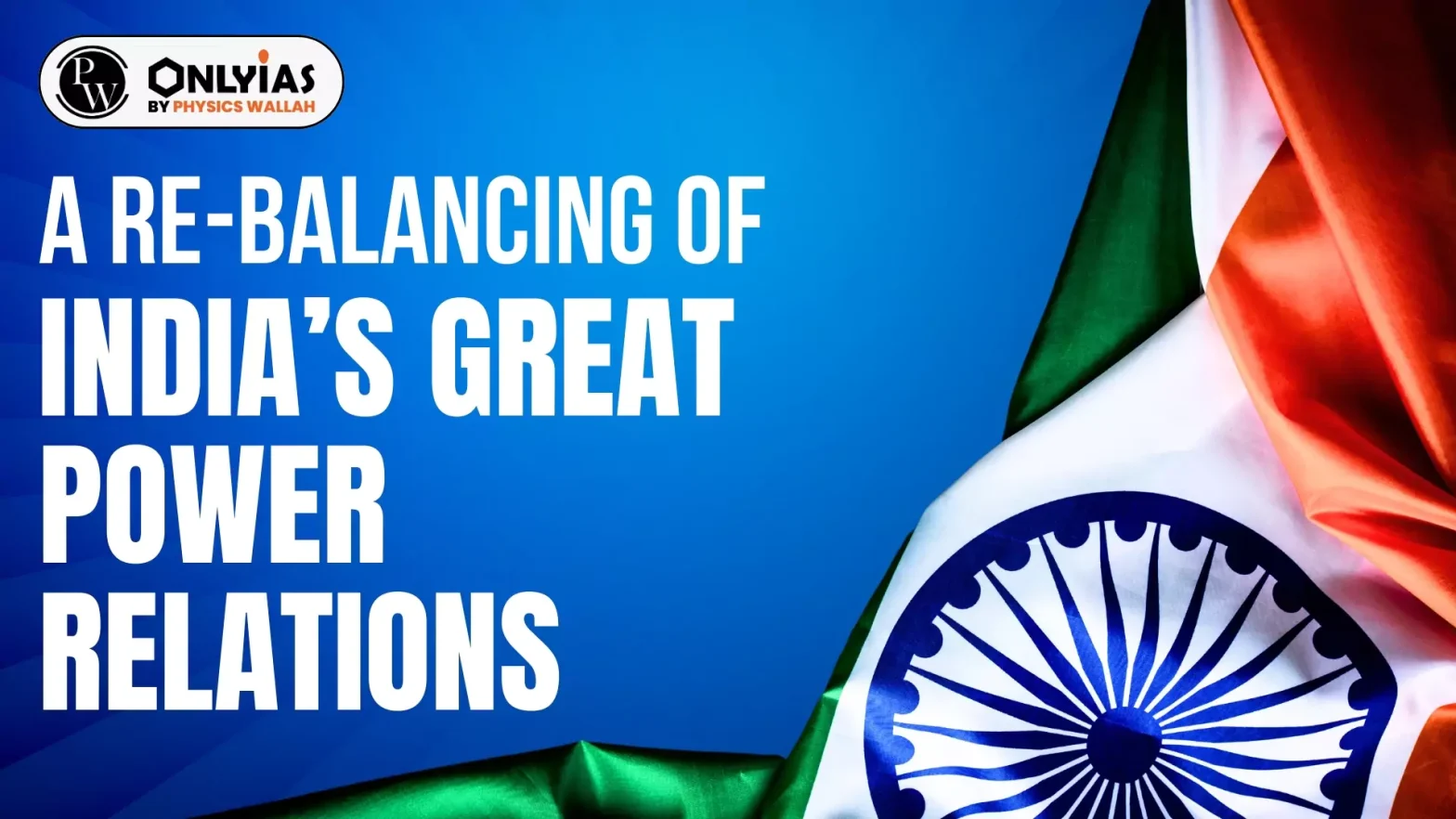Prime Minister Modi’s recent participation in the Quad Leaders Summit highlights India’s efforts to strengthen Indo-Pacific security and its role as a global peacemaker, while rebalancing its foreign policy to maintain strategic autonomy amid changing global dynamics.
The Quad, comprising the U.S., India, Japan, and Australia, is a strategic alliance aimed at promoting a free, open, and secure Indo-Pacific.
- Its purpose is to enhance cooperation on security, economic, and technological issues while addressing regional challenges like China’s growing influence.
|
Enroll now for UPSC Online Course
India’s Aspirations and Initiatives
India has been actively pursuing a diplomatic balancing act through multiple engagements with major global powers.
- Strategic Interests in the Indo-Pacific: India’s participation in the Sixth Quad Leaders’ Summit highlights its aim to strengthen security cooperation among Quad nations.
- This collaboration is focused on maintaining a rules-based order in the Indo-Pacific to counter challenges from revisionist powers.
- Balancing Relations with China: India is actively managing its complex relationship with China, as evidenced by National Security Adviser Ajit Doval’s discussions with Chinese Foreign Minister Wang Yi.
- These talks underline India’s commitment to resolving military tensions along the Line of Actual Control (LAC).
- Global Mediation Role: Doval’s recent interactions with the Russian President illustrate India’s aspirations as a global peacemaker.
- By proposing Modi’s Ukraine peace plan, India seeks to position itself as a mediator in international conflicts, thereby enhancing its diplomatic profile.
Associated Geopolitical Challenges
- Russia-China Relations: The strengthening military and economic ties between Russia and China present significant security challenges for India.
- China’s increasingly aggressive actions along the Himalayan borders heighten these risks, necessitating India to carefully navigate its diplomatic strategies to safeguard national interests.
- Diplomatic Scrutiny Over Russia-Ukraine Conflict: India’s continued purchase of discounted Russian oil amid the Russia-Ukraine conflict has raised eyebrows among Western nations, leading to scrutiny regarding its commitment to global norms.
- Perception of the Quad by Russia: While the Quad aims to counter Chinese aggression, Russia views it as a Western alliance, raising concerns over India’s close ties with Moscow.
-
- India seeks to maintain a balanced relationship with Russia to navigate this geopolitical landscape.
- Navigating Quad and BRICS Dynamics: India seeks to participate actively in both groups; however, the growing dominance of China within BRICS, contrasted with Russia’s influence, complicates India’s efforts to maintain a balanced foreign policy amidst competing interests.
- Role as Mediator: India may not become a mediator in global conflicts due to a lack of leverage to compel compliance, unlike the U.S. or UK.
Way Forward
- Pragmatic relation with Russia: As global dynamics shift, India must adapt its foreign policy to prioritize pragmatism and current geopolitical realities.
- The absence of a guaranteed Russian backing in contemporary conflicts necessitates a reassessment of this long-standing partnership, as past support does not ensure future alignment.
- Strategic Partnership with the U.S.: India’s relationship with the U.S. is becoming increasingly crucial, especially in light of the structural challenges in India-China relations.
- This includes security issues along the LAC, territorial issues, Chinese naval presence in the Indian Ocean Region, and the China-Pakistan Economic Corridor (CPEC).
- Mediation: India can effectively serve as a facilitator, encouraging dialogue, or as an interlocutor, actively listening to both sides to promote understanding and cooperation.
Check Out UPSC CSE Books From PW Store
Conclusion
India must recalibrate its foreign policy to embrace a pragmatic approach that reflects evolving global dynamics. By strengthening ties with the U.S. while managing its historical relationship with Russia, India can navigate complex geopolitical challenges, bolster its strategic interests, and enhance its role as a global mediator in the Indo-Pacific region.
![]() 8 Oct 2024
8 Oct 2024
